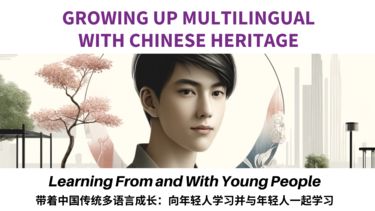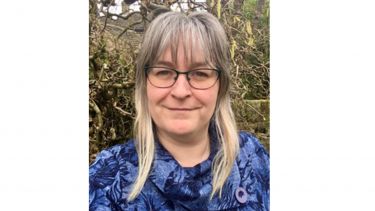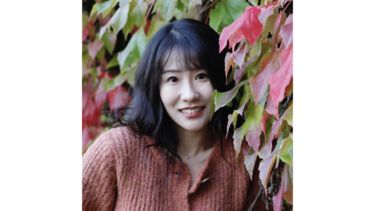The Sheffield Confucius Institute regularly invites academics and experts worldwide to give talks at its UK-China Seminar series, exploring research in language and literature studies, language teaching and cultural exchange.
For our most recent seminar, entitled ‘Growing up Multilingual with Chinese Heritage: Learning From and With Young People’, we worked with the founder of the project, Dr Sabine Little, and her Research Associate, Dr Yue Zhou, to help platform and support their research.
I think the freedom behind the project might be initially disconcerting for our young participants. It’s quite rare for a young person to hear “whatever you want to share, in whatever format, it’s okay, we want to hear it”.
Dr Sabine Little
The project itself gathered hundreds of submissions from Chinese heritage children globally, ranging from poems to personal accounts, to provide an extensive and extremely varied perspective on their lives and issues they face. This project stands out by prioritising the voices of young people, allowing them to share their experiences and insights in their own unique ways.
Dr Little is Director of Education and a senior lecturer at the University of Sheffield and a distinguished researcher in the field of multilingualism and heritage language learning. The SCI was delighted to sit down with Dr Little to discuss the motivations, challenges, and rewarding aspects behind the project, acknowledging the valuable contributions of the young co-researchers involved.
1. Can you tell us about the inspiration behind the "Growing Up Multilingual with Chinese Heritage" project? What motivated you to focus on this topic?
I have been working with heritage language families and multilingual children for over a decade, and this included families that were well connected to local communities that had a similar linguistic and cultural background, but also families that were more isolated. I believe that it is very important to understand the children’s perspectives - they are the only ones actively navigating family, school, and wider society. With this project, I wanted to ensure children and young people had the opportunity to raise what they thought was important in their lives as young multilinguals, not what researchers thought was important.
2. How did you go about collecting the essays, photographs, pictures, collages, videos, and songs from young people globally? What challenges did you face in this process?
I think the freedom behind the project might be initially disconcerting for our young participants. It’s quite rare for a young person to hear “whatever you want to share, in whatever format, it’s okay, we want to hear it”. Young people’s lives are typically more regulated. We also wanted to make sure that the project was conducted ethically - unsurprisingly, young people shared not only pleasant experiences, and some are under the age of 18, so we had to consider and plan the ethics application very carefully. Logistically, we needed a platform that could handle any and all sorts of submissions, but that was easy by comparison. Finally, we wanted to make sure that the wording we used was appropriate for the children and young people we were looking to approach, and that’s where our young co-researchers helped.
3. Can you describe the role of the seven young co-researchers in the project? How were they selected, and what specific contributions have they made?
Our seven young co-researchers are absolutely integral to the project! When they were recruited, only the bare bones of the project had been decided, because we wanted to embed young people’s voices throughout the project from start to finish, as much as possible. We recruited young people growing up multilingual with Chinese heritage, who lived locally, so they could attend meetings, so we recruited both via social media and via local Chinese heritage language schools. Our co-researchers have been instrumental in deciding on how we phrase the global call to reassure young people that they could share whatever they wanted with us, and also shaped the background questions we asked as part of the submission process. For our local focus group strand, they first helped identify the themes we should explore, and then the actual questions. We looked at data together, and they helped us identify common threads in the data. They also help with dissemination, both through presentations and academic journal articles, depending on their interests, and the time they have available.
4. What are some of the key findings or insights that have emerged from the global submissions and local focus groups?
What is coming through clearly is the daily balancing act many of our participants are engaging in. Some have responsibilities at a young age, translating important documents for their parents. Many have shared experiences of racial discrimination. Some entries discuss what it is like belonging - or not belonging - to multiple languages and cultures, and the struggles this entails. But we also have many contributions focusing on the importance of relevant festivals, and pride in language and culture. Many participants chose to share their thoughts in a chronological manner, and I think this is really important to highlight that growing up multilingual is a journey, and it isn’t always easy, but our engagement with and understanding of our identity evolves as we grow older, valuing different aspects of our lives.
5. What has been the most rewarding aspect of working on this project for you personally and professionally?
I consider it an immense privilege that all these young people are willing to share their thoughts and lives. We have data that brings a smile to my face, and we have data that makes me cry - I feel a great sense of responsibility to do justice to the trust and vulnerability our participants have displayed. We are trying to find a variety of ways to share this data with the wider community - academic as well as the general public. Our young co-researchers are incredibly bright, and, again, it is a privilege to work with them, hear them engage with the data, and the topics coming out of them. Also, working with Dr Yue Zhou, who was recruited to the research associate post linked to the project, has been incredibly rewarding - she brings so much to the project, and it is a pleasure working with her.
6. Can you share any plans for the future of this project? Are there any upcoming phases, publications, or events that we should look out for?
We currently have two journal articles coming out of the project under review, and more in the pipeline. There are also a few conference presentations coming up over the summer, and plans for an online exhibition of our data. Finally, we are working with a group of young performers, and with support from Theatre Deli, on a way to turn our research data into a performance for Festival of the Mind. This will take place on Sunday 22nd September in Sheffield City Centre.
An exciting to future to come...
Dr Sabine Little and Dr Yue Zhou’s research provides an insightful exploration into the complexities, challenges and unique perspectives of navigating multiple languages and cultures as seen through the eyes of young people. As they continue to share their research and feature in upcoming publications and events, we look forward to hearing more about the continuation of their work. Stay tuned for more updates about their progress and for any future opportunities to engage with their important research.





